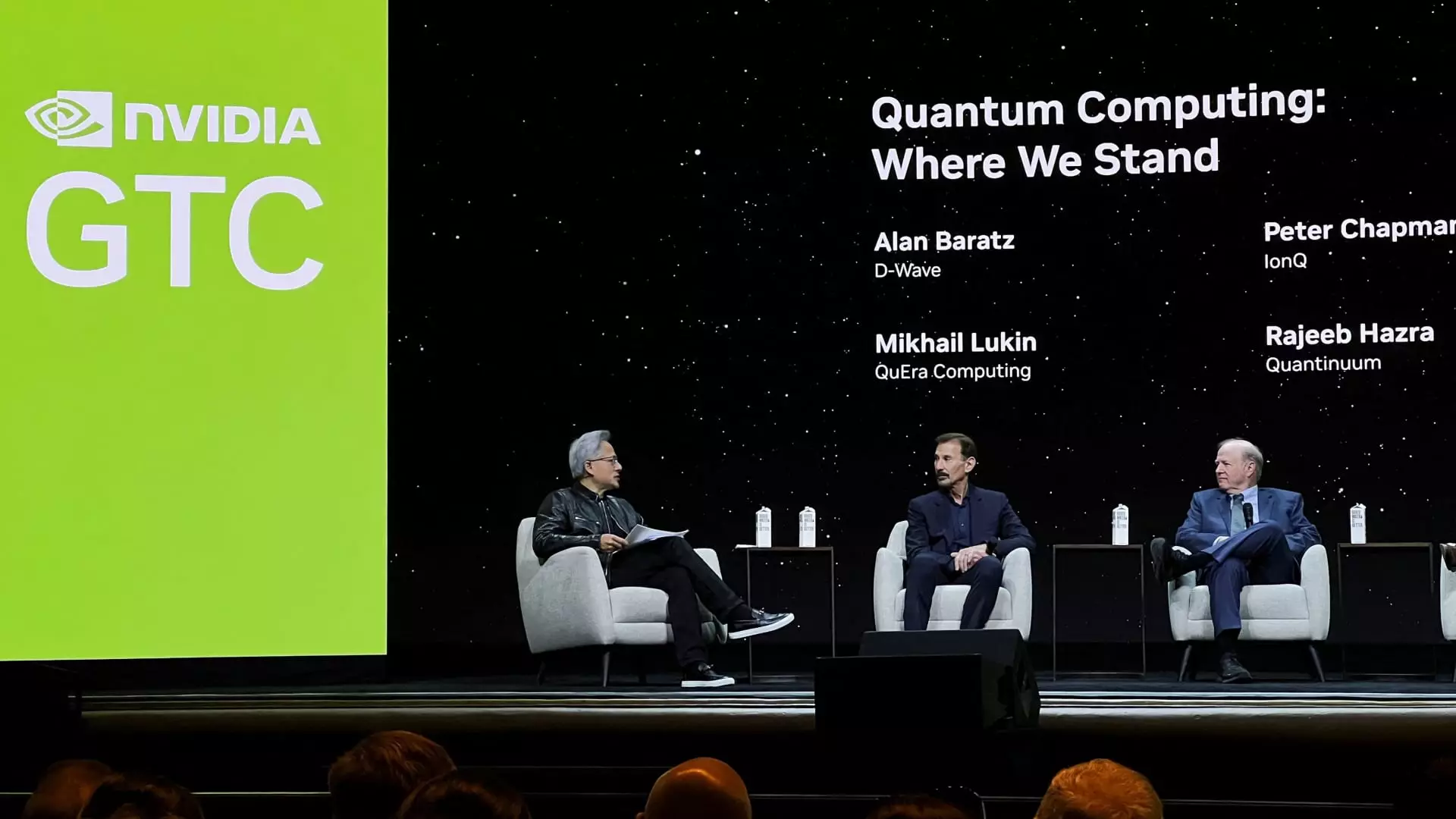Nvidia CEO Jensen Huang took center stage during the company’s pioneering “Quantum Day,” seeking to recalibrate perceptions about quantum computing following controversial statements made earlier this year. Despite his efforts, the results were anything but reassuring for the quantum sector. Instead of fostering optimism, Huang’s attempt at clarification led to a notable decline in the stocks of key companies in the industry, raising eyebrows and questions about the trajectory of quantum technology. A staggering 18% drop in D-Wave’s stock and a broader decline across the Quantum Defiance ETF is emblematic of an industry still grappling with credibility issues.
It’s clear that Huang’s intended message—essentially a timeout on the unrealistic timelines previously suggested—backfired catastrophically. In retrospect, his admission that he miscalculated how his words would ripple through the market only adds to the complexity of interpreting quantum computing’s future. His assertion that thirty years might be a more appropriate timeframe for practical applications may be a sobering reality check, but this only feeds into the skepticism already surrounding the industry.
The Stock Market’s Reaction
Huang’s newest claims of quantum computing needing “at least 15 years” to prove beneficial were not warmly received, and the market’s reaction further entrenched the prevailing sentiment of doubt. The stock declines of companies like Rigetti Computing and IonQ, both more than 9%, signify a worrying trend where investor confidence hangs by a thread. The sharp movements in these stocks reveal not merely a fear of quantum’s viability but also a reaction to the constant push-pull of optimism and skepticism emanating from industry leaders.
This volatility has raised questions about the sustainability of investments in quantum initiatives. Investors seem perpetually on edge, reacting disproportionately to the slightest tremors in leadership commentary. In essence, Huang’s anecdote of being the first CEO to invite criticism becomes a symbol of the larger problems plaguing the industry—when the public narrative is fraught with inconsistencies and premature enthusiasm, how can stakeholders be expected to keep the faith?
Branding and Perception Issues
One of the critical themes emerged during Huang’s presentation was the problematic branding of quantum computing. Analysts, including Needham’s N. Quinn Bolton, pointed to Huang’s suggestion that the term “quantum computer” may be misleading. This highlights a significant concern: the labeling of quantum technology has set high expectations that may lead to disillusionment. If quantum systems are not positioned as counterparts to classical computers but as complementary tools, the perception issue could be mitigated somewhat.
But therein lies the paradox. Existing within the tech lexicon, the moniker ‘computer’ inherently carries the baggage of expectations. Huang’s battle to reshape this paradigm isn’t just a marketing challenge; it represents a fundamental struggle for the identity of quantum technology itself. This transition from flashy buzzwords to realistic portrayals could decide the future of an entire sector once hailed as the next frontier of innovation.
The Role of Nvidia and Long-term Implications
Nvidia’s influence in the quantum sphere is hard to overstate. The company’s prowess in providing powerful simulators has laid the groundwork for other quantum ventures, positioning it as a key player in the ecosystem. However, the cold reality is that Nvidia benefits from the current state of quantum computing, not its eventual success. The plan to erect a research center in Boston in collaboration with elite academic institutions like Harvard and MIT is a positive step, but one must question whether this optimism will actually translate into tangible advancements anytime soon.
Investors remain skeptical, as reflected in the dwindling value of the Quantum Defiance ETF. The market has not just adopted a watch-and-wait strategy; it feels almost like it’s bracing for disappointment. Enthusiasm for quantum computing seems to oscillate between cautious hope and grim acceptance that the breakthrough might still be far over the horizon.
In the end, Huang’s attempts to recalibrate the conversation around quantum technology illuminate the fragile interplay between ambition and realistic timelines. Quantum computing’s potential is undeniable, yet navigating the gaps between expectations and reality remains the true test for industry leaders and investors alike.

